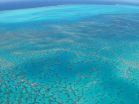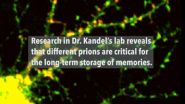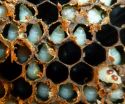(Press-News.org) Climate change is forcing fish out of their current habitats and into cooler waters and many more species will soon be affected if climate goals are not met, say scientists.
An international team of researchers compared the future of the oceans under two climate change scenarios. In one scenario, we limit atmospheric warming to two degrees by 2100, as outlined by the Copenhagen accord. In the other, we continue with the current approach, which researchers say would cause a five-degree increase in atmospheric temperatures. They say if warming continues unchecked, fish will migrate away from their current habitats 65 per cent faster, resulting in changes to biodiversity and ecosystem functions.
The new research, published today in Science, points to the need to limit emissions to help reduce the impact of rising atmospheric temperatures and acidifying oceans. The findings are intended to inform discussions at the upcoming 2015 United Nations Climate Change Conference in Paris.
"All the species and services we get from the ocean will be impacted and everyone, including Canadians, who benefit from these goods and services are vulnerable," said William Cheung, associate professor and co-director of the Nereus Program at UBC. "On a positive note, we still have options to substantially reduce these impacts now but the longer we wait the fewer and fewer options we have."
This study was completed by the Oceans 2015 Initiative, an international team of researchers from Europe, Australia, the U.S., and Canada. Cheung and his colleague Rashid Sumaila, co-authors of the study, examined how climate change will impact fisheries and the many coastal communities that depend heavily on fisheries resources for food and economic security.
"From looking at the surface of the ocean, you can't tell much is changing," said Sumaila, director of UBC's Fisheries Economics Research Unit. "The oceans are closely tied to human systems and we're putting communities at high risk."
The researchers suggest taking action to protect marine ecosystems and to help communities adapt by providing education and training opportunities to diversify livelihood options. They also say it's important to make every effort now to limit emissions.
"While some regions will see increases in some fish biomass, these gains may be only temporary if carbon dioxide emissions continues," said Sumaila.
Photographs and an animated movie are available here: https://db.tt/WnFQn9eR.
Background
For this study, researchers with the Ocean 2015 Initiative examined the latest research on the impact of climate change in our oceans, and the goods and services they provide, valued at hundreds of billion of dollars per year.
The study assessed the impact of climate change on marine and coastal ecosystems, ocean chemistry, tourism, and human health. Cheung and Sumaila specifically analyzed how warming will impact fisheries and the global economic gains we receive from these fisheries.
The findings are intended to inform discussions at the 2015 United Nations Climate Change Conference in Paris in December. This conference hopes to achieve a legally binding agreement on climate.
INFORMATION:
The Oceans 2015 Initiative is led by CNRSUPMC and IDDRI and is supported by the Prince Albert II of Monaco Foundation, the Ocean Acidification International Coordination Centre of the International Atomic Energy Agency, the BNP Paribas Foundation and the Monégasque Association for Ocean Acidification.
Source: Gattuso J.P., Magnan A., Billé R., Cheung W. W. L., Howes E. L., Joos F., Allemand D., Bopp L., Cooley S., Eakin M., HoeghGuldberg O., Kelly R. P., Pörtner H.O., Rogers A. D., Baxter J. M., Laffoley D., Osborn D., Rankovic A., Rochette J., Sumaila U. R., Treyer S. & Turley C., 2015. Contrasting futures for ocean and society from different anthropogenic CO2 emissions scenarios. Science http://www.sciencemag.org/lookup/doi/10.1126/science.aac4722.
A new study has discovered mysterious behaviour of a material that acts like an insulator in certain measurements, but simultaneously acts like a conductor in others. In an insulator, electrons are largely stuck in one place, while in a conductor, the electrons flow freely. The results, published today (2 July) in the journal Science, challenge current understanding of how materials behave.
Conductors, such as metals, conduct electricity, while insulators, such as rubber or glass, prevent or block the flow of electricity. But by tracing the path that electrons follow ...
Researchers at Vanderbilt University and the National University of Singapore have determined the structure of a human monoclonal antibody which, in an animal model, strongly neutralizes a type of the potentially lethal dengue virus.
The finding, reported today July 2 in the journal Science, could lead to the first effective therapies and vaccines against dengue, a complex of four distinct but related mosquito-borne viruses that infect about 390 million people a year and which are a leading cause of illness and death in the tropics.
"Scientists in the antibody discovery ...
NEW BRUNSWICK, N.J., - July, 2, 2015 - Johnson & Johnson (NYSE: JNJ) announced today that scientists at Beth Israel Deaconess Medical Center (BIDMC), Crucell Holland B.V, one of the Janssen Pharmaceutical Companies of Johnson & Johnson (Janssen), and several other collaborators today published results from a preclinical study of an HIV vaccine regimen used in in non-human primates. The study, published in the online edition of Science, suggests that a "heterologous prime-boost" vaccine regimen--which first primes the immune system, then boosts the immune system to increase ...
Doughnuts, electric current and quantum physics - this will sound like a weird list of words to most people, but for Sebastian Huber it is a job description. ETH-professor Huber is a theoretical physicist who, for several years now, has focused his attention on so-called topological insulators, i.e., materials whose ability to conduct electric current originates in their topology.
The easiest way to understand what "topological" means in this context is to imagine how a doughnut can be turned into a coffee cup by pulling, stretching and moulding - but without cutting ...
Hamilton, ON (July 2, 2015) - Two new studies led by researchers from the Farncombe Family Digestive Health Research Institute at McMaster University show that transplantation of fecal matter may be a useful tool in the fight against ulcerative colitis (UC).
Ulcerative colitis is a chronic, debilitating inflammatory bowel condition characterized by symptoms including bloody stools, diarrhea, abdominal pain, weight loss and malnutrition. It results from the development of abnormal immune responses to the normal bacteria in the digestive tract. It is difficult to treat ...
NEW YORK, NY (July 2, 2015)--Research from Eric Kandel's lab at Columbia University Medical Center (CUMC) has uncovered further evidence of a system in the brain that persistently maintains memories for long periods of time. And paradoxically, it works in the same way as mechanisms that cause mad cow disease, kuru, and other degenerative brain diseases.
In four papers published in Neuron and Cell Reports, Dr. Kandel's laboratory show how prion-like proteins - similar to the prions behind mad cow disease in cattle and Creutzfeld-Jakob disease in humans - are critical ...
Think you're a foodie? Adventurous eaters, known as "foodies," are often associated with indulgence and excess. However, a new Cornell Food and Brand Lab study shows just the opposite -adventurous eaters weigh less and may be healthier than their less-adventurous counterparts.
The nationwide U.S. survey of 502 women showed that those who had eaten the widest variety of uncommon foods -- including seitan, beef tongue, Kimchi, rabbit, and polenta-- also rated themselves as healthier eaters, more physically active, and more concerned with the healthfulness of their food ...
An infestation of speck-sized Varroa destructor mites can wipe out an entire colony of honey bees in 2-3 years if left untreated. Pesticides help beekeepers rid their hives of these parasitic arthropods, which feed on the blood-like liquid inside of their hosts and lay their eggs on larvae, but mite populations become resistant to the chemicals over time.
While exploring plant-based alternatives to control Varroa mites, Chinese bioagricultural and Japanese cell physiological labs saw that certain tick repellents repress mites from finding their honey bee hosts. In a ...
To observe the brain in action, scientists and physicians use imaging techniques, among which functional magnetic resonance imaging (fMRI) is the best known. These techniques are not based on direct observations of electric impulses from activated neurons, but on one of their consequences. Indeed, this stimulation triggers physiological modifications in the activated cerebral region, changes that become visible by imaging. Until now, it was believed that these differences were only due to modifications of the blood influx towards the cells. By using intrinsic optical signals ...
Healthy people given the serotonin-enhancing antidepressant citalopram were willing to pay almost twice as much to prevent harm to themselves or others than those given placebo drugs in a moral decision-making experiment at UCL. In contrast, the dopamine-boosting Parkinson's drug levodopa made healthy people more selfish, eliminating an altruistic tendency to prefer harming themselves over others. The study was a double-blind randomised controlled trial and the results are published in Current Biology.
The research provides insight into the neural basis of clinical disorders ...




